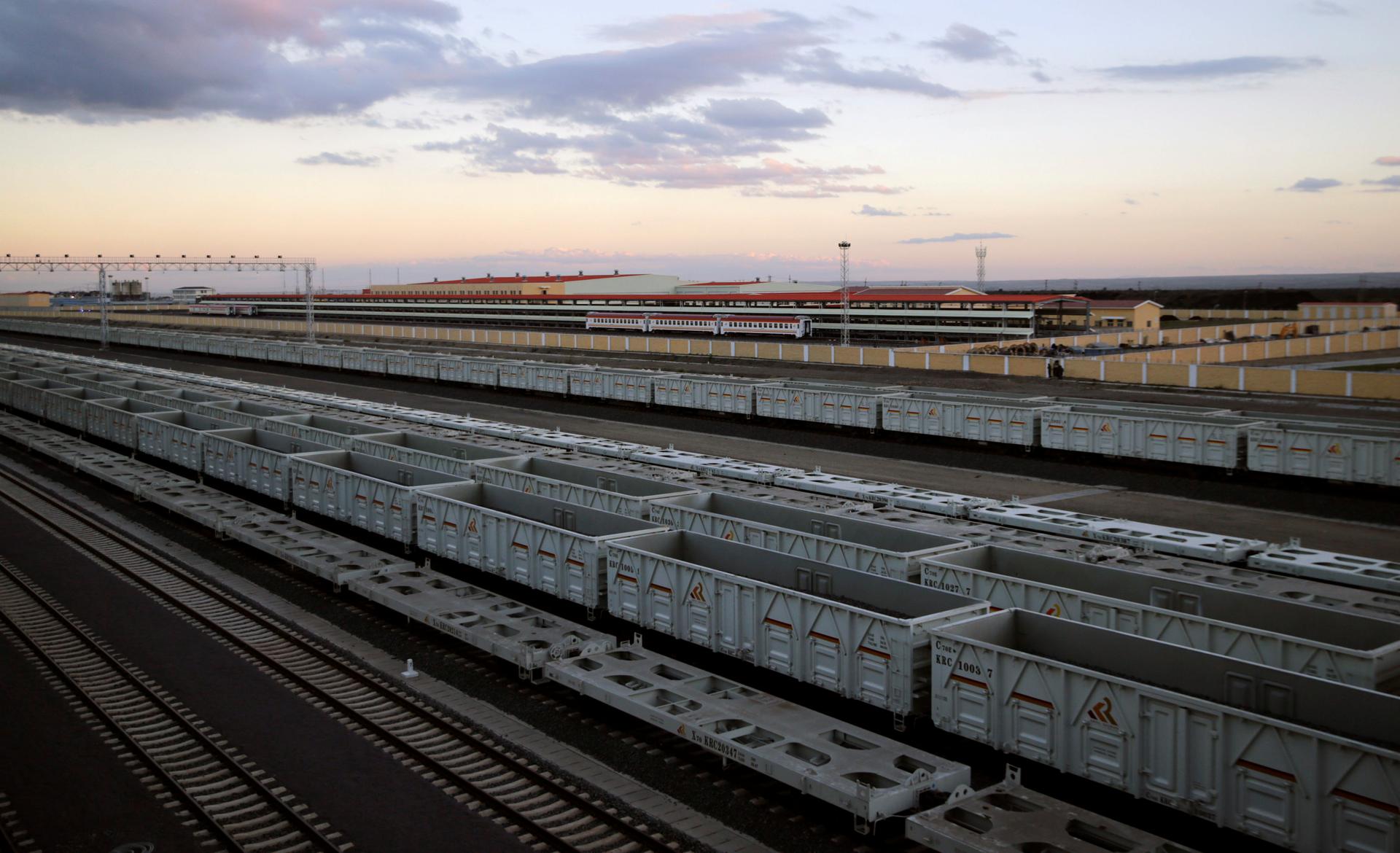Why China is sending jobs to Africa
The cargo terminal of the Standard Gauge Railway line constructed by the China Road and Bridge Corporation and financed by Chinese government on the outskirts of Kenya's capital Nairobi.
If you listen to politicians, it may seem like America is losing its manufacturing jobs to China. If you’ve listened to Innovation Hub before, you know that’s not the whole picture.
Automation is taking a lot of jobs, China isn’t the only manufacturing powerhouse, and even when jobs do move to China, they don’t necessarily stay there. In fact, there has been some movement of Chinese manufacturing and industry to an area of the world you might not expect: Africa. Irene Yuan Sun, author of the forthcoming book "The Next Factory of the World," has studied this shift, and she thinks it’s a big deal.
“Many of the things that Americans buy in shopping malls are made by Chinese companies, not in China, but actually in Africa,” Sun says.
She points to Lesotho, a tiny country in southern Africa (only slightly bigger than Massachusetts). It has dozens of factories that produce clothing and apparel for Levi’s, Kohl’s and Walmart. The workers may be from Lesotho, but the owners are Chinese or Taiwanese. And Sun estimates that only around 5 percent of Chinese manufacturing has moved to Africa so far. But even that is enough to change the economies of African countries like Lesotho.
And Sun believes that it’s important for Americans to be aware of this shift.
First, it represents an opportunity for American businesses. For example, Chinese construction firms are going to Africa and building mega-projects like railways, ports and bridges. The equipment that these projects use is often from American companies like General Electric or Honeywell.
The second reason Americans should care is less business-oriented. Sun points out that America has been heavily involved in trying to help alleviate poverty in Africa for more than half a century. And though there have been some wonderful accomplishments in that area, many African countries remain extremely poor.
“Now there’s this big new opportunity in that Africa can industrialize and actually change the structure of its economies by using manufacturing investment from China,” says Sun. “So this is a historic opportunity towards a goal that America has been putting resources into for a long time.”
Sun thinks that industrialization, with Chinese help, could lift a lot of African countries out of poverty. She brings up the story of Ahmed Ibrahim. Ahmed grew up in a poverty-stricken part of Nigeria without a decent formal education, and like a lot of young people, he moved to the city to find work. He found some odd jobs, but nothing long-term.
Then, he became a driver for a Chinese businessman who was looking to build a factory in Nigeria. After proving himself indispensable, he worked his way up to a factory management position and is now able to get jobs for his brother and the rest of his tribe. He has a stable, middle-class life.
Which isn’t to say that China’s foray into Africa is entirely rosy. There are downsides. Industrialization is not an easy process. It wasn’t easy when it happened in America, and it wasn’t easy when it happened in China. There are major environmental issues, and this investment is happening in an area of the world without a strong tradition of labor advocacy.
That can lead to African workers being exploited. Sun traced the story of a worker named Kenneth Frederick who was electrocuted to death on the job at a Chinese factory in Nigeria. She tried to find out from labor advocates, the media, and the owners of the factory what exactly happened to Frederick, and she heard conflicting reports and no clear answers. Simply put, the systems for protecting workers are just not in place.
But overall, Sun believes that Chinese investment in Africa could be a positive thing.
“China itself, through the last generation, has gone through the most remarkable poverty alleviation record that any country in the world has,” Sun says. “And it’s done that on the back of attracting foreign investment.”
The same sort of transformation could happen in Africa. In fact, when Sun talks to Chinese businessmen about cities and towns in Ethiopia and Nigeria, many of them tell her that they’re “just like my hometown 30 years ago.”
A version of this story originally appeared on Innovation Hub.
